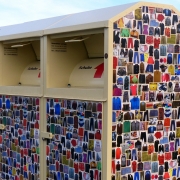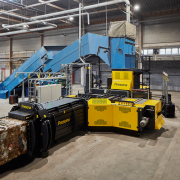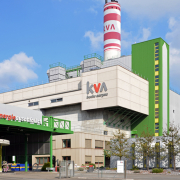International Environment Council: BIR Develops EPR Position and Reinforces its Case for the Environmental Benefits of Recycling
The Bureau of International Recycling is formulating a new policy position on extended producer responsibility (EPR) and started the process of issuing a new report on the environmental benefits of recycling, the organisation’s World Recycling Convention in Abu Dhabi has been told.
Speaking to the International Environment Council on 23 October, the Trade & Environment Director Alev Somer said BIR had held an internal workshop meeting on EPR in September ahead of delivering a new position paper. Ms Somer pointed out that 30 such schemes in the early 1990s had grown to around 400 today and EPR was now on the agenda at the UN, the OECD as well as the EU. “This is happening with or without us,” she said. “One of the main concerns raised at the [September] meeting was that recyclers are not sitting at the [global] table when they are discussing EPR. We are absent, we are invisible.”
Ms Somer shared the three key messages from BIR’s draft position which will be finalised at the World Council of Recycling Associations meeting:
- EPR schemes should be set up only when absolutely necessary, while acknowledging that free and fair competition is vital to the recycling business model
- Governments should prioritise other policy instruments first, such as legally binding targets for recycled content and design for recycling, to increase circularity
- When an EPR scheme is an absolute necessity, recyclers must be involved in the governance, ownership of materials should be retained by the recycling company processing them, and tenders must be transparent and fair.
BIR has previously published reports on the environmental benefits of recycling in 2008 and 2016 with an emphasis on metals. This time, Ms Somer told delegates, the scope would be broadened to include all the commodities that BIR represents and new aspects. “We want to go beyond CO2 emissions and energy savings from recycling. We are looking at other natural resource savings at a wider level so we might include water consumption or transport emissions and have some comparisons between secondary and primary production.” Ms Somer said the intention was to give BIR more data so it would be in a stronger position when talking at a global level with the UN, the OECD or the EU. The report is expected to be delivered at BIR’s Singapore Convention in October 2024.
Introducing the guest speakers, IEC Chairman Olivier Francois of Galloo in France and Belgium, recalled a period 20 years earlier when business was mainly conducted by the market. “Now regulation is a very big weight on our business,” he said, adding this included CO2 emissions and the decarbonisation of steel and steel making. Taxation was one issue, as was the partial introduction in the EU of its new Carbon Border Adjustment Mechanism (CBAM) from October 1.
The first speaker was Emmanuel Katrakis, Secretary General of EuRIC, the umbrella organisation for recyclers in the EU, who spoke about CBAM. He said it was intended to make it fairer for producers in Europe, already paying for their carbon emissions, when competing against those who have no such additional costs. “The objective is to put a carbon border to adjust the price difference between them and other producers in the world,” he said.
High-emission industrial sectors included in the first phase are iron and steel, aluminium, cement, electricity, fertiliser and hydrogen. Ferrous and other recycled raw materials are currently excluded from CBAM because their carbon footprints are lower. CBAM came into force on October 1 with a transitional phase for reporting emissions but no payments resulting. When the permanent system enters into force in January 2026, importers will need to declare the goods taken into the EU the previous year. Their embedded greenhouse gases and payments will be calculated and fees paid.
“In theory it is easy to understand,” said Mr Katrakis. “In practice it is not.”
Mr Francois pointed out many manufacturers within the EU were concerned that CBAM would increase costs when they were already coping with higher energy and labour charges. In particular, car makers feared that steel prices would increase and “there will be additional distortion between what we can be manufactured inside Europe and compared to what can be manufactured outside Europe.”
The second guest speaker, Adam Shaffer, Assistant Vice President International Trade & Global Affairs for the US recyclers’ organisation ISRI, said carbon tax regulations were not widely developed in the US. Some east and west coast states had aspects of carbon pricing, he explained, but there was no federal position and one was unlikely in the foreseeable future. Mr Shaffer said the US wanted its products exempt from the EU’s CBAM policy and he thought there might be a potential challenge to the World Trade Organization. He pointed out that the trade in recycled materials was not directly impacted.
In conclusion, Mr Francois said Europe preferred push measures with “a lot of administrative burdens and constraints” (“the stick”), whereas the US sought to use pull movements (“the carrot”).
Source: BIR (Brussels, October 27, 2023)








